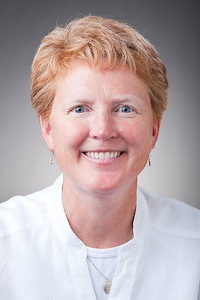UW-Madison makes it easier to report incidents of hate, bias
MADISON — The University of Wisconsin–Madison is taking steps to make it easier to report incidents of hate and bias, to further its commitment to a living, working and learning environment that is safe, inclusive and respectful.
For instances in which members of the campus or Madison communities fall short of those standards, the Division of Student Life has created an expanded mechanism for reporting such incidents. The new tools, which include a Web form and office locations for reporting, are open to students, faculty and staff and the community. They are designed to aid in responding to — and, ideally, preventing — incidents contributing to a hostile campus environment.
“The Wisconsin Experience involves a commitment to making the world a better place — and that should never include feeling threatened, unsafe or disrespected,” says Lori Berquam, vice provost for student life and dean of students. “Incidents of hate or bias can dramatically disrupt the learning process, both for those who experience these incidents firsthand and those who care about others around them.”
A bias incident is an intentional threat or act of harassment or intimidation — verbal, written or physical — that targets a member of the UW community or the general public because of an actual or perceived characteristic of that person. (Expression of an idea or opinion that a person finds offensive does not, per se, constitute an act of bias.) To read the full policy on bias incidents, click here.
From research and personal interactions, the university recognizes that many incidents, large and small, can go unreported. Someone who experiences or witnesses an incident may feel uncomfortable discussing it — or even feel that doing so may threaten their safety. Even if an act itself is unintentional, it can negatively affect others — regardless of whether those others were the intended audience.
“We want it to be easier to report these incidents,” says Berquam. “We also want everyone to understand that we treat these issues very seriously.”
The new policy and reporting process were developed with input of a committee of staff and students representing several university units, including the Division of Diversity, Equity & Educational Achievement, the Division of Student Life, and the Division of University Housing. In the past, it may not have been apparent where members of the community should go to receive resources or assistance.
People who have observed or experienced inappropriate or demeaning behavior are encouraged to report it, by either submitting a form electronically or reporting an incident in person (see a list of office locations). Later this year, a link will also be added to the university’s MobileUW app.
In response to these reports, staff will:
—Respond personally.
—Provide support and assistance in dealing with the emotional or psychological impact.
—Indicate whether the situation involves a violation of university policies or the law.
—Help sort out courses of action to stop the discrimination or the harassment, including meetings or mediation.
—Explain the instances in which disciplinary action can be taken.
“Everybody plays a role in setting our shared community standard,” says Berquam. “If something happens to one of us, it happens to all of us.”





